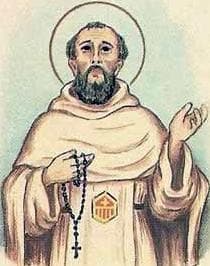
Blessed Juan Urgel
Blessed
Feast Day: August 26
Death: August 26, 1513
Biography
Blessed Juan Urgel, also known as Blessed Juan de Urgell, was a Mercedarian friar who dedicated his life to the service of God and the liberation of Christian captives. Born in an undisclosed date and location, his early life remains a mystery, but his contributions to his religious order and the Church are well-documented.
In the year 1492, Blessed Juan Urgel was elected as the Master General of the Mercedarians, a religious order dedicated to the ransoming of Christians enslaved by non-Christians. His tenure as the head of the Mercedarians lasted for an impressive 21 years, during which he worked tirelessly to strengthen the order and further its missionary work.
One of the notable achievements of Blessed Juan Urgel was the establishment of numerous monasteries both in Spain and northern Africa. These monasteries served as centers for spiritual guidance, education, and support for the Mercedarian friars, as well as for the captive Christians liberated through the efforts of the order.
Blessed Juan Urgel's administrative responsibilities did not hinder his personal piety and devotion. Despite the demands of his position, he remained committed to his own spiritual growth, continuously seeking a deeper connection with God. This dedication to his personal faith was admired by his peers and followers, as it served as an inspiration for their own religious pursuits.
On August 26, 1513, Blessed Juan Urgel passed away in the Mercedarian convent located in Barcelona, Spain. He died of natural causes, leaving behind a legacy of unwavering faith, organizational reforms, and numerous spiritual beneficiaries.
Although the specific details of his beatification and canonization are not provided, it is possible that his cause for sainthood has been initiated and is currently being evaluated by the Church.
Blessed Juan Urgel's life and work continue to inspire countless faithful to this day. His commitment to the freedom of Christian captives, his efforts in expanding the Mercedarian order, and his personal piety make him a figure worthy of veneration and emulation.